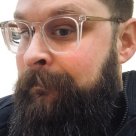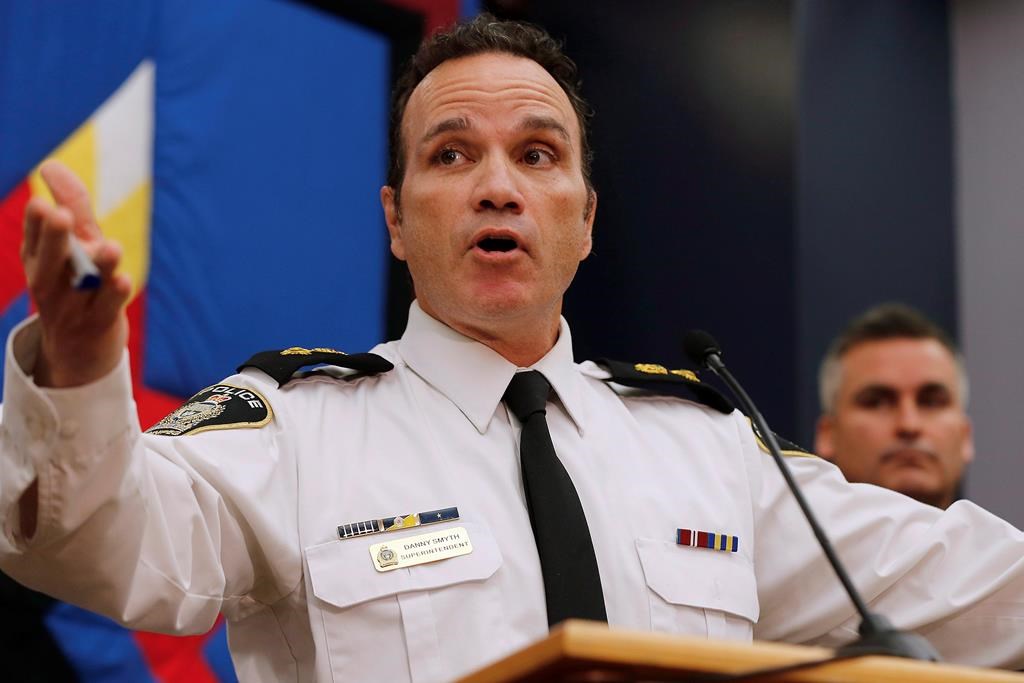With anti-racist protests taking place across North America — including one set for Friday evening at the Manitoba Legislature — the subject of police violence and racism has been on everyone’s minds.

Set off by the death of a Minnesota man, George Floyd, who died of asphyxiation while being arrested by Minneapolis police last week, protesters are calling for accountability and reform within law enforcement, as well as a measure of justice for the scores of people of colour killed by police in recent years.
Winnipeg police chief Danny Smyth told 680 CJOB it’s important to give Winnipeggers an opportunity to voice their concerns, and that he’ll be listening to what people have to say.
Part of that is acknowledging that the Winnipeg police have problems of their own when it comes to policing people of colour, especially the city’s Indigenous community, Smyth said.
“Certainly we do our best to try to provide direction, policy, guidance, training, but we’re all human, and we certainly have… some bad apples too,” said Smyth — one of 47 representatives of police services across North America who have signed an open letter from the Major Cities Chiefs Association, acknowledging the impact police have on people of colour.
“It’s something we do ongoing along with other training, whether that’s ethics, whether that’s use of force, whether that’s trauma-informed, there’s a myriad of things that our members need to be aware of.”
Smyth cited the Independent Investigation Unit (IIU) as an example of ‘strong governance’ in situations where police use force and cause injury and death, and said the WPS will be accountable for those situations — including the recent shooting deaths of three Indigenous Winnipeggers by police in a 10-day period.
One of those killed by police was a 16-year-old girl, Eishia Hudson, who died in early April in an officer-involved shooting.
“There’s been some good work, but there will always be questions.
“We’re one critical incident away from losing our reputation, and it’s something that we have to continually work on.”
“Working with the communities, working with the leaders in the community, that’s the only way I know how to address some of these problems, and we will continue to do that,” he said.
Corey Shefman, a human rights lawyer representing Indigenous people in Manitoba and Ontario, told 680 CJOB on Tuesday that 66 per cent of people killed by Winnipeg police over the past two decades have been Indigenous, and that internal actions and oversight by police and government have been ineffective.
“The police are a huge problem, but it’s not just the police. This is a problem that goes all the way through the Canadian justice system. Don’t forget that 70 per cent of people in Manitoba jails are Indigenous,” he said.
“Obviously Manitoba has a large Indigenous population but it’s still only about 10-15 per cent, and then you get these massive overrepresentations when it comes to violence by the state.”
“Police, particularly in the prairies, have long disproportionately targeted Indigenous people, and unfortunately, no one in power seems to be willing to do anything about it.”

Shefman described efforts to hold police accountable for violence as having fallen flat.
“The solutions that have been imposed are half-hearted and don’t work, and what we’re left with are communities of colour — and in Winnipeg particularly, Indigenous communities — feeling targeted by police and seeing their members killed by police.
Indigenous people aren’t committing crimes at 20 times the rate of white people. It’s not the reality of the situation.”
A community organizer who came to Winnipeg with his family from South Sudan in the late ’90s says he’s had a number of positive interactions with local police over the years — but the ones that stick in his mind the most involved racial profiling.
Those experiences sparked Mandela Kuet to form UMOJA Winnipeg — an organization aimed at improving relationships between newcomers and police.

“Those incidents have really shaped how I see and how I interact with the police,” Kuet told Global News.
“I’m always very aware of which police officer I’m talking to based on assessing if this person is a good ally or not a good ally.”
Kuet said he felt the organization, which dissolved in 2016, served as a way for community members to have trusted people they could go to if they had concerns about police — but that it got to a point where police seemed unwilling to participate.
“There wasn’t a lot of tangible actions on how to resolve issues. It was only case-by-case. It wasn’t a structural process or streamlined process where there’s investment with both sides where the community and police have an agreement and are held accountable,” he said.
In the years since, Kuet said he sees gaps between how community members react to police, and how police conduct themselves with newcomers.
“There is racism embedded in Canada. I know people will try to think Canada doesn’t have that. It does.”
“You see it in schools, in hospitals and healthcare and other areas,” he said.
“More should be done. Not everyone has the platform to be able to share their voice and concerns when things happen.”
Mathew Joseph, after-school program manager at the Immigrant and Refugee Community Organization of Manitoba (IRCOM), said his organization has had fruitful interactions with Winnipeg police in the past, but there’s still work to be done.
The last meeting the two sides had was in August 2019, he said, and he’d like to work to rekindle that relationship.
“We hope to start that over, it was a very good initiative that the police initiated with us. To be able to open an avenue where newcomers and Indigenous communities can express themselves about things happening in the community,” said Joseph.
- ‘Shock and disbelief’ after Manitoba school trustee’s Indigenous comments
- Canadian man dies during Texas Ironman event. His widow wants answers as to why
- Several baby products have been recalled by Health Canada. Here’s the list
- ‘Sciatica was gone’: hospital performs robot-assisted spinal surgery in Canadian first
“What we need to see in the community is where… police officers are not coming to hurt people, but coming also to be part (of the community) and bring peace.
“That’s why those meetings with the police leadership were very productive… but a lot of newcomers — particularly African-descent people — they’re still expressing the experience of being a subject of racism at the parks, in the public spaces, and at the mall, those kinds of things.”
The head of the Winnipeg Police Association says police in Canada are typically more community-based, while they tend to be more militaristic south of the border — and that the neck restraint that killed George Floyd in Minneapolis is prohibited here.
“Our members are taught that if there’s a need to restrain a subject, once they’re handcuffed, you put them into the recovery position if they’re experiencing any type of medical distress,” Moe Sabourin told 680 CJOB.
“From those videos that we saw out of Minneapolis, that wasn’t the case.”
Sabourin said in his opinion, Winnipeg police have some of the best training in the world, and that there’s good oversight to deal with bad-apple officers.
“I think you’re never going to completely eliminate racism in society. There’s going to be a certain percentage of people that become hired by the police service.
“There are so many levels of oversight that our members face that if there is behavior that shouldn’t be happening, there are ways that it can be dealt with,” he said.
As a labour entity, the police association is obligated to legally represent officers, said Sabourin, and there are a number of ways discipline can be handed down, depending on the severity of the allegation.
He doesn’t think, however, that officers go out looking to use lethal force, and that a person’s race doesn’t play into the decision to do so.
“No officer ever wants to use lethal force — that’s the last thing in their mind that they think they’re going to have to apply when they show up for duty,” he said.
“When you’re making a decision whether grievous bodily harm or death is going to occur, you’re going to stop a threat and unfortunately people are going to lose their lives.”











Comments